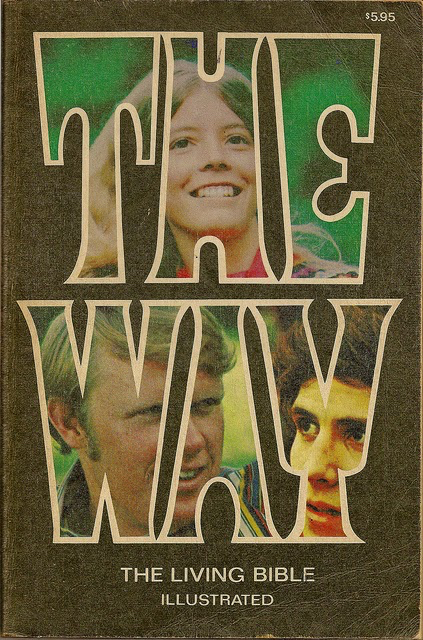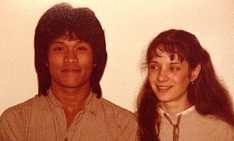Despite its political incorrectness in the postmodern age, I believe in evangelism. Despite some of the embarrassing ways of street preachers, televangelists, mass tract-distributors, and well-meaning door-to-door gospel peddlers, I still believe in the practice of sharing with others the good news concerning Jesus so that they may come to faith in Christ and join the new community.
I make this affirmation amid sentiments to the contrary. Evangelism is outmoded and ineffective, many say. Let our actions speak, and if people become Christians as a result, then fine. But let’s not try to convert them. Others outright reject it as wrongheaded, immoral, and even evil. Evangelism violates peoples’ culture, faith, and dignity. Practice compassion and justice on behalf of the poor and advocate for the oppressed and the marginalized instead.
I affirm evangelism loudly and clearly—sometimes because I am so ready to agree with my fellow social activists! After all, I believe in compassion, justice, and advocacy, too, as an indispensable way to share the good news of the kingdom. But each time I get ready to make the jump onto the social justice-only bandwagon, a profound sense of pause wells up from within, as memories from my own faith journey come to the fore.
I remember getting up every Sunday morning at 7:30 to watch “Davey and Goliath,” that old hokey television “claymation” program, which I credit now for opening my eyes to the possibility of God. As a child living in a loving, but faith-free, challenging home, that silly little show actually provided an alternate, desirable narrative of life for me. Of course, I wouldn’t have described it that way back then; I just liked the show. It made me laugh. It made me feel good inside. But now I ask, how would I be different today if the Lutheran Church (the creator of the show) didn’t believe in evangelism enough to create “Davey and Goliath”?
I remember how, amid family upheaval and the eventual divorce of my parents, this cute girl named Janice gave me a big green book called The Way as a gift. I knew she was a Christian, so I figured this thick green paperback was some kind of Bible. Her overt yet nonjudgmental excitement about the faith compelled me to accept this gift, which I began to devour when I became a Christian about three years later. Incidentally, around the same time I started to read it, I called Janice to thank her for the gift. It’s a longer story than this article can contain, but the short of it is, we got married two years later. How would I be different today if Janice didn’t believe in evangelism enough to give me a Bible and share her excitement?

I remember at the age of 14—a freshman in high school—declaring myself an atheist. How can there be a god of order and love, I argued, amid such chaos, not only in my own family but in the world? Truly believing that humanity was on its own, I indulged in self-medication (drugs), popularity and parties, sports and academics, all in order to make sense out of life and to ease the pain. At 17, still in the thick of adolescent angst, I was invited by a girl I liked to a youth gathering called Son City. On the strength of my crush, I agreed to go to the gathering, and there for the first time I heard the gospel in a way that I could respond. After an hour or so of sports, games, and music, some guy named Ralph in blue jeans and a t-shirt got up and shared a message about God’s love being made real in Jesus Christ. In my desperate state, I responded to the call to “invite Jesus into my heart.” How would I be different today if Ralph and those other Bible school interns in my hometown didn’t believe in evangelism enough to organize that youth outreach called Son City?
The cumulative effect of these and other no-less significant experiences led to my becoming a new creation in Christ. Grace, forgiveness, peace, purpose, hope—after an initial taste of such things, I never looked back. With Christ at the center, I have experienced things I don’t deserve—a happy marriage, well-adjusted children, a fruitful ministry, strength amidst trials, deep joy and peace of mind, to name just a few grace gifts. I have been a Christian now for 35 years, and it was because certain people were faithful to share the good news with me.
How can I believe in evangelism in this day and age? In light of my own journey to faith, how can I not? How can I not also be the bearer of good news for others? How can I not possibly believe that the transformation of the world does not also include the transformation of the heart?
There is a mantra that has served me well through the years in keeping my faith alive and personal. I say to myself quite regularly, “When in doubt, reminisce.” When God begins to feel distant; when life’s circumstances cause me to forget my first love; when my hope begins to flag that Christ is the answer not only to the world’s problems but also to our problems, I simply need to remember how up-close-and-personal I have experienced the living God. By reminiscing in this way, doubt recedes, vitality returns, and passion for the lost resolutely remains on the agenda.
Al Tizon is the Ronald J. Sider Associate Professor of Holistic Ministry at Palmer Theological Seminary, co-President of Evangelicals for Social Action, and co-Director of the Sider Center on Ministry and Public Policy at Eastern University.


